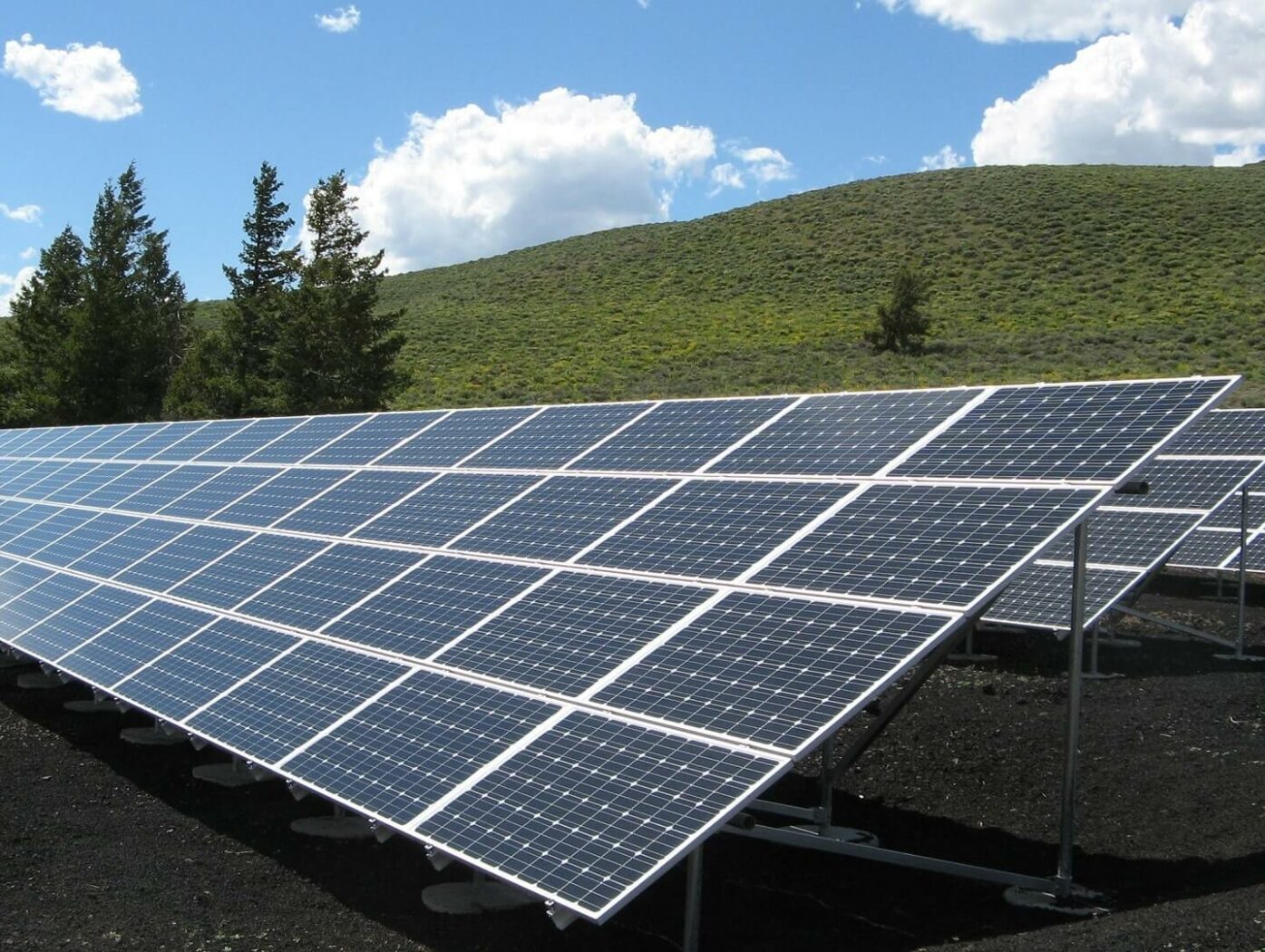Our Why: Investing in Renewable & Efficient Energy

The Challenge
Energy is key to mitigating climate change, yet fossil fuels continue to supply the majority of the world’s energy. Fossil fuels release nitrogen oxides and other greenhouse gases when they are burned, which contributes to air pollution. These greenhouse gases also trap heat in the earth’s atmosphere, which leads to climate change. In fact, fossil fuels are the largest contributor to global climate change.[1]
Fossil fuels are not only a leading cause of climate change, they also negatively impact health. Last year, researchers at the University of Wisconsin-Madison estimated that tens of thousands of U.S. lives would be saved each year if air pollution from burning fossil fuels is eliminated.[2] Burning fossil fuels is a primary source of fine particulate pollution in the U.S., and fine particles cause diseases like lung cancer, heart disease, and stroke. Children are particularly vulnerable to the negative health affects of air pollution, and poor children are most at risk as air pollution disproportionately harms low-income communities.
A few facts:
- Fossil fuels account for over 75% of global greenhouse gas emissions and nearly 90% of all carbon dioxide emissions[3]
- According to the World Health Organization, about 99% of people in the world breathe air that exceeds air quality limits and threatens their health, and more than 13 million deaths around the world each year are due to avoidable environmental causes, including air pollution[4]
- Thousands of kids under age 5 die each year due to respiratory infections attributed to fossil fuel pollution[5]
- Climate-related health risks are compounded for the 40% of the world’s children who live in informal settlements where substandard housing, overcrowding, hazardous locations, unhealthy living conditions, poverty, and poor access to basic services can harm their health and well-being[6]
- People who live in predominately Black communities suffer greater risk of premature death from particle pollution than those who live in communities that are predominately white[7]
Why It Matters
In order to prevent the worst of climate change’s future harms, fossil fuel use needs to be dramatically reduced. Renewable energy is energy produced from natural sources like the sun and wind that are naturally replenished and do not run out. To reach net-zero by 2050, approximately $4 trillion annually needs to be invested in renewable energy until 2030.[8] Unlike fossil fuels, renewable energy sources emit little to no harmful emissions, and therefore can reduce air pollution and improve health outcomes.
Transitioning to renewable energy offers economic benefits as well. Costs from renewables continue to fall, and renewable energy is the cheapest power option in most parts of the world today.[9] According to the International Renewable Energy Agency, nearly two-thirds of renewable power added in 2021 had lower costs than the cheapest coal-fired options in G20 countries.[10] In addition to lowering costs for energy, every dollar of investment in renewables creates three times more jobs than in the fossil fuel industry.[11]
A few facts:
- It is estimated that 90% of the world’s electricity can and should come from renewable energy by 2050[12]
- Transitioning to renewable energy helps reduce premature deaths, heart attacks, asthma exacerbations, and hospitalization for cardiovascular or respiratory issues[13]
- The reduction of pollution and climate impacts alone of transitioning to renewable energy could save the world up to $4.2 trillion by 2030[14]
- Investments in renewable energy and energy efficiency could create 63 million new jobs by 2050[15]
Uplifting’s Response
Uplifting Capital invests to increase the share of renewable and efficient energy in the global energy mix, provide access for affordable and sustainable energy, and improve energy infrastructure and technologies.
[1] https://www.un.org/en/climatechange/science/causes-effects-climate-change#:~:text=Fossil%20fuels%20%E2%80%93%20coal%2C%20oil%20and,they%20trap%20the%20sun’s%20heat.
[2] https://www.npr.org/2022/05/17/1099482986/eliminating-fossil-fuel-air-pollution-would-save-about-50-000-lives-study-finds
[3] https://productiongap.org//www/wp-content/uploads/2019/11/Production-Gap-Report-2019.pdf
[4] https://www.who.int/news/item/04-04-2022-billions-of-people-still-breathe-unhealthy-air-new-who-data
[5] https://www.hsph.harvard.edu/c-change/news/fossil-fuel-air-pollution-responsible-for-1-in-5-deaths-worldwide/
[6] https://www.who.int/news-room/fact-sheets/detail/children-new-threats-to-health
[7] https://www.lung.org/clean-air/outdoors/who-is-at-risk/disparities
[8] https://www.un.org/en/climatechange/raising-ambition/renewable-energy
[9] https://www.irena.org/-/media/files/irena/agency/publication/2022/mar/irena_weto_summary_2022.pdf?la=en&hash=1da99d3c3334c84668f5caae029bd9a076c10079
[10] https://www.irena.org/news/pressreleases/2022/Jul/Renewable-Power-Remains-Cost-Competitive-amid-Fossil-Fuel-Crisis
[11] https://www.un.org/sites/un2.un.org/files/fast_facts_-_renewable_energy_oct_2022.pdf
[12] https://www.un.org/en/climatechange/raising-ambition/renewable-energy#:~:text=Renewable%20energy%20sources%20are%20all%20around%20us&text=The%20International%20Renewable%20Energy%20Agency,from%20renewable%20energy%20by%202050.
[13] https://www.hsph.harvard.edu/c-change/subtopics/clean-energy-health/#:~:text=That%20increases%20energy%20independence%20and,for%20cardiovascular%20or%20respiratory%20issues.
[14] https://www.un.org/en/climatechange/raising-ambition/renewable-energy
[15] https://www.wri.org/insights/3-reasons-invest-renewable-energy-now#:~:text=Ambitious%20investment%20in%20renewable%20energy,United%20States%20and%20Europe%20alone.
Investments in securities involves the risk of loss. Any mention of a particular security and related performance or impact data is not a recommendation to buy or sell that security. The information provided in the Uplifting Capital newsletter, podcast, social media channels or the www.upliftingcapital.com website (including any information that may be accessed through this website) is not directed at any investor or category of investors and is provided solely as general information.



